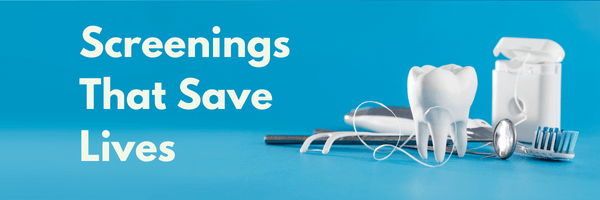
Spotting A Toxic Dental Employee Before You Hire Them
Posted February 16, 2022
Given the uncertainty of the world, many people are living and operating from a place of fear, so it’s understandable that employees may feel a bit disenchanted or burned out. Our salary survey indicated as many as 30% of respondents were burned out. However, there is a difference between being burned out and just being outright toxic.
But how do you spot the difference? And more importantly, how do you keep from hiring them, especially when you’re desperate to replace a productive team member that has moved on? The scarcity of dental hygiene candidates thwarts dental practices, but hiring a toxic person, or even the wrong person into the practice for the sake of production, could create more hiring problems than it helps. Toxic team members drain and weaken the existing team, having them seek opportunities in healthier work environments.
Having temped in over 100 dental offices, I have lots of stories about toxic dental clinicians and teams. While I normally talk about how important assessments are to uncovering personality, core values, and culture to find the right fit for a team, they can be as helpful in weeding out candidates with potential red flags or attitude issues.
One Toxic Employee Spoils The Whole Dental Team
One research study using a large data set of nearly 60,000 workers across 11 firms in various industries, including communications, consumer services, financial services, health care, insurance, and retail showed that one toxic employee wipes out the gains for more than two superstars. They define a superstar as the top 1% of workers in terms of productivity. The study determined that a superstar contributes around $5,000 per year to the company’s profit, while a toxic worker costs about $12,000 per year. That number doesn’t even account for other costs like turnover, potential litigation fees, and lower quality patient experience. (Source: Harvard Business Review: Dylan Minor, Asst. Professor at Harvard University and Michael Housman, Chief Analytics Officer at Cornerstone OnDemand)
How to Screen Out Toxic Dental Candidates
There’s an art to nuanced interview questions to uncover people’s true nature. Asking the candidate how they managed a past situation can provide great insight. Many hiring managers conduct loosely structured interviews where they only ask one question like, “Tell me about a time you had a challenging situation and how you handled it.” It’s important to ask the same question in a few different ways so that you can truly get to the root of the candidate’s way of operating, thinking, and behaving. Ask it in both the past and present tense like “How did you handle, how would you handle, or what would you do if…”
Be sure to ask for examples of how past behavior matches the core values you’re looking for. Make sure you take the core values assessment as an employer so that you can match for candidates on this critical aspect of your office culture. Be sure to explicitly state those values to all dental candidates.
Questions To Uncover Toxic Attitudes & Potential
Here are some additional questions that can help discern toxic behavior and attitudes.
- What would your former employer say about you — positive and negative?
- If you managed people in your previous positions, what would your reports say about you — positive and negative?
- If you could improve just one thing about yourself, what would it be? Anything else?
- What has been the most stressful thing that you had to deal with at work? What was the cause of it and the stress?
- How do you communicate to your team or your manager that you need help?
- Tell me about something that frustrated you in a previous position. What did you do about it?
- What kind of people do you find are easy to work with? Difficult to work with?
- Tell me about a time you messed up and it was not a small mistake. Describe the situation–how did you handle it and what did you learn?
Characteristics and Behaviors to Look For:
- Was the candidate responsive in the hiring process? Did they answer emails and your efforts in outreach promptly? Did they arrive promptly for the interview? If they were late, how did they appear and act when they finally arrived?
- Does the candidate speak ill of former employers or others? If they don’t, do they accept responsibility for behaviors, results, and outcomes, or do they blame others?
Body Language Indicating Someone May be Lying or Omitting Information:
The mouth may be saying one thing, but the body never lies. Following are some signs of either omitting information or not telling the truth. These signs are not rules, but rather considerations and things to look for. Use these signs in combination with assessments, references, and your own good judgment and gut instinct to be discerning.
- Mouth: Tensing the lips can be an automatic reflex that indicates a person does not want to speak further on a subject.
- Eyes: Not making eye contact is obvious. Some candidates have become practiced and adept at making eye contact, boldly staring you down while lying. But eventually when asked the question multiple times in multiple ways, they will break. The eyes will break upwards and to the left. Rapid blinking repeatedly can also be a sign.
- Voice: Our body’s response to lying is to become nervous, which tightens the vocal cords, causing our voice to go a bit higher pitched than normal and requiring us to clear our throat more. Sometimes, when we’re on the defensive, we raise our voice.
- Diction: Words matter. Someone saying they are telling you the truth, repeatedly, can be a sign they are not. Taking too long to respond but not saying anything but filler words can also be a sign that they are stalling to try to figure out the right answer or an answer other than the truth or what comes naturally to them.
- Body: When asked a direct question, watch for sudden bigger movements of the head. Fidgeting can mean nervousness. Pay attention to too much movement of the feet, arms and body. And the opposite can be true too. If someone stays frozen like a deer in the headlights and doesn’t show natural movement as though they are feeling free and not choreographed, that’s notable, too.
Going Beyond The Dental Candidate’s References
Make sure to ask everyone in the office and not just those on the interview schedule who met with the candidate if the potential employee was courteous and friendly. It pays to go beyond the typical references provided by the candidate. Check local or regional dental organizations, professors and spend a minute going deep in a social media search to see what pops up. These days, people are unafraid to show their ugliest selves on social media, and if they are doing that publicly, you don’t want that association with your brand.
It should go without saying that we must exemplify professionalism, leadership, and humility if we are to attract the same. It’s hard to expect someone to be balanced and well if you’re not modeling the same behavior. Consistently structured, behavioral-based interviews, in conjunction with personality assessments and your own gut instincts, can keep you from hiring the wrong person that can seriously jeopardize the health of your current team and patient experience.
We connect and educate more than 900,000 job seekers in the U.S. and Canada to build better places to work through teams that excel.






.png)


